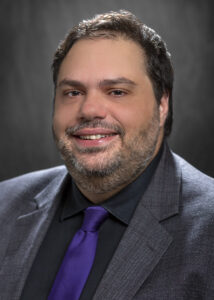The 16th International Workshop on Digital Forensics
to be held in conjunction with the 18th International Conference on Availability, Reliability and Security
(ARES 2023 –
http://www.ares-conference.eu
)
August 29 – September 01, 2023
Welcome Message from the WSDF Workshop Organizers
It is our great pleasure to welcome you to the 16th International Workshop on Digital Forensics (WSDF), which will take place in Benevento (Italy) from 29 August to 01 September 2023.
Digital forensics is a rapidly evolving field primarily focused on the extraction, preservation and analysis of digital evidence obtained from electronic devices in a manner that is legally acceptable. Research into new methodologies tools and techniques within this domain is necessitated by an ever-increasing dependency on tightly interconnected, complex and pervasive computer systems and networks. The ubiquitous nature of digital devices in modern life presents many avenues for the potential misuse of these devices in crimes that directly involve, or are facilitated by, these technologies. The aim of digital forensics is to produce outputs that can help investigators ascertain the overall state of a system. This includes any events that have occurred within the system and entities that have interacted with that system. Due care has to be taken in the identification, collection, archiving, maintenance, handling and analysis of digital evidence in order to prevent damage to data integrity. Such issues combined with the constant evolution of technology provide a large scope of digital forensic research.
WSDF aims to bring together experts from academia, industry, government and law enforcement who are interested in advancing the state of the art in digital forensics by exchanging their knowledge, results, ideas and experiences. The aim of the workshop is to provide a relaxed atmosphere that promotes discussion and free exchange of ideas while providing a sound academic backing. The focus of this workshop is not only restricted to digital forensics in the investigation of crime. It also addresses security applications such as automated log analysis, forensic aspects of fraud prevention and investigation, policy and governance.
This year we were particularly interested on AI-based techniques and tools to help digital forensic investigations, and on digital investigations involving AI-based synthetic evidence generated by technologies such as Natural Language Generation (NLG), Generative Adversarial Network (GAN), and Large Language Model (LLM).
The acceptance rate of this edition of the workshop was 44%.
Workshop Chairs
Virginia N. L. Franqueira
University of Kent, UK
Andrew Marrington
Zayed University, UAE
Richard Overill
King’s College London, UK
Andrew Jones
University of Hertfordshire, UK
Kim-Kwang Raymond Choo
University of Texas at San Antonio, US
Program Commitee
Arafat Aldhaqm, University Technology Malaysia, MY
Olga Angelopoulou, University of Warwick, UK
Harm van Beek, Netherlands Forensic Institute, NL
Jeroen van den Bos, Infix Technologies, NL
Frank Breitinger, University of Lausanne, CH
Kam-Pui Chow, The University of Hong Kong, HK
Jan Collie, The Open University, UK
Glenn Dardick, Association of Digital Forensics, Security and Law, US
Sarah De’Ath, De Montfort University, UK
Raphael Antonius Frick, Fraunhofer Institute, DE
George Grispos, University of Nebraka, US
Chris Hargreaves, University of Oxford, UK
Erisa Karafili, University of Southampton, UK
Kiran-Kumar Muniswamy-Reddy, Amazon Web Services, US
Liliana Pasquale, University College Dublin, IE
Chiara Pero, University of Salerno, IT
Mark Scanlon, University College Dublin, IE
Stavros Shiaeles, University of Portmouth, UK
Simon Tjoa, St. Polten University of Applied Sciences, AT
Benjamin Turnbull, The University of New South Wales, AU
Inna Vogel, Fraunhofer Institute, DE
Adrian Winckles, Anglia Ruskin University, UK
Stefano Zanero, Politecnico di Milano, IT
Subreviewer
Céline Vanini, University of Lausanne, CH
Keynote
Dr. Ibrahim (Abe) Baggili
Louisiana State University, Baton Rouge, LA, USA
Who You Gonna Call? Unmasking AI Investigations through AI Forensics
Machine Learning (ML) and Artificial Intelligence (AI) have become inescapable forces, permeating every facet of our society, from business and academia to public and private sectors. However, AI failures are an undeniable reality that demands urgent attention from forensic researchers and practitioners. When AI embarks on mischievous endeavors, an important question arises: Who you gonna call? While AI/ML/<Insert Buzzword> are hailed as powerful tools to enhance digital forensics processing, it is imperative that we redirect our focus towards the forensics of AI. Join me in this keynote as we explore the emerging field of AI forensics, an essential sub-discipline within the realm of digital forensics. Through an overview of this evolving field and a spotlight on intriguing research problems, we will ignite understanding of the pressing need to address AI investigations.
Dr. Ibrahim (Abe) Baggili is a first generation Arab American. He is a Professor of Computer Science and Cybersecurity at Louisiana State University and the founder of the BiT Lab (Baggili Truth Lab) where he holds a joint appointment between the Division of Computer Science & Engineering and the Center for Computation and Technology. He has won numerous awards including the CT Civil Medal of Merit, the Medal of Thor from the Military Cyber Professional Association, CT 40 under 40, and is a fellow of the European Alliance for Innovation. Prior to that he was the director of the Connecticut Institute of Technology and Elder Family Endowed Chair of Computer Science & Cybersecurity at the Tagliatela College of Engineering at the University of New Haven. He received his BSc, MSc and PhD all from Purdue University where he worked as a researcher in CERIAS. Work with his students has uncovered vulnerabilities that impact over a billion people worldwide and has been featured in news and TV outlets in over 20 languages and he has published extensively in the domain of digital forensics. To learn more about the BiT Lab, you can visit https://csc.lsu.edu/~baggili .





